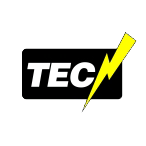Generator Safety
Generator Safety
Electric generators can help you in many ways during a power outage. That’s good news in winter when the potential for ice and snow-related outages rises. Generators can run a refrigerator, keeping food from spoiling, operate life-sustaining equipment, run a small heater and allow you to have some lights. Overcoming Mother Nature’s wrath with such a machine is nice, but it’s vital to hook up the generator correctly and handle it with care.
Keep these safety tips in mind if you will be installing a generator:
- Install your generator outside under cover of a weather shield, like a vented shed. Most units use the type of gasoline used in a lawnmower, which when burning fuel emits deadly carbon monoxide fumes.
- Store gasoline safely. Many generators have tanks as big as five gallons. But because power outages aren’t frequent, there’s a good chance the gas in your machine will go bad between uses.
- Hire a licensed electrician to install the generator and a transfer switch (also called a double-pole/double-throw switch). Improper installation can send electricity from your generator onto utility power lines, energizing wires that line workers believe to be out of service. A TEC lineworker unaware of the situation could be killed.
- Buy a generator with enough capacity to run the appliances you will need during an outage. If you plan to operate expensive equipment like a computer, double-check with your dealer to make sure the generator can safely power sensitive electronics.
- Do business with a company that has a good reputation and offers a warranty.
